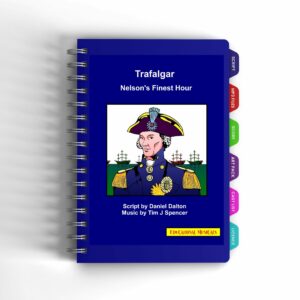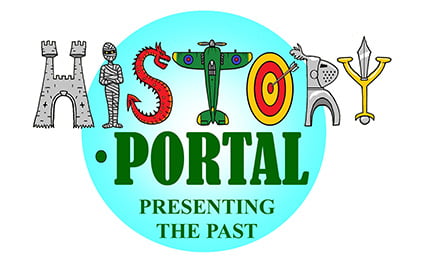
This was the famous battle where Nelson put a telescope to his blind eye and said, “see no signal”, it is said to be the most famous act of disobedience ever by a commander in the Royal Navy.
It appears what happened was that when he had been sent a signal to disengage, he turned to his flag captain, Thomas Foley, and said “You know, Foley, I only have one eye — I have the right to be blind sometimes,” and then, holding his telescope to his blind eye, said “I really do not see the signal!”
Was he disciplined for disobeying an order?
No because for this reason, basically, due to Nelson’s obstinacy this naval battle has gone down in history as one of his greatest victories, but why did it happen?
What lead up to it?
This was at the time of the Napoleonic wars. We are in early in 1801, Russia, Prussia, Sweden, and Denmark had formed a coalition to protect their own shipping and, more importantly, from our point of view to cut our supplies of Baltic timber. You see the route between Denmark and Sweden was absolutely vital to us, as it was through this gap came Baltic timber, the vital raw material we used to build our war ships. Therefore, to keep this route open and to break the coalition by forcing Denmark to withdraw, Nelson was sent as second in command of a fleet under Admiral Hyde Parker.
Nelson’s plan
It was to concentrate on parts of the Danish defence and defeat it. Now, the Danish fleet were in port and as the sea wasn’t very deep close to the shore Admiral Parker’s ship was too big to get close to the action, so he could only watch the fight proceed through the smoke of battle. When he saw what he thought were two of his frigates on fire, he assumed we were losing and sent the famous signal to withdraw.
Result
Today, we all know that Nelson ignored these instructions and went on to win a resounding victory, besting fifteen Danish warships while losing none in return.
Nelson gets an honour
So, it happened that a senior Admiral, Nelson, defied an order and went on to win the battle. It was even more bizarre as for disobeying this order they gave him a viscountcy!
 We have written an musical about Nelson’s most famous and last battle, which is at https://www.history-portal.com/index.php/product/trafalgar/ where you can download our musical Trafalgar – Nelson’s Finest Hour listen to two of the 12 songs in the show..
We have written an musical about Nelson’s most famous and last battle, which is at https://www.history-portal.com/index.php/product/trafalgar/ where you can download our musical Trafalgar – Nelson’s Finest Hour listen to two of the 12 songs in the show..
Isn’t history fun!
10 Questions to discuss:
- Strategic Value: Beyond securing timber supplies, were there other strategic or political motivations for the British attack on Copenhagen?
- Civilian Casualties: While the blog focuses on naval losses, what was the impact of the battle on civilians in Copenhagen? Were there significant casualties or damage to the city?
- Danish Perspective: How did the Danes interpret Nelson’s actions and the outcome of the battle? Did it influence their relationship with Britain and other European powers?
- Long-Term Ramifications: Did the Battle of Copenhagen have any lasting effects on the Napoleonic Wars or the balance of power in Europe?
- Military Code of Conduct: How did Nelson’s actions challenge the established military code of conduct at the time? Did it spark debates about obedience and leadership in wartime situations?
- Alternative Tactics: Could Nelson have achieved his objective of weakening Denmark without resorting to a direct attack? Were there other feasible strategies under consideration?
- Technological Influence: What role did advancements in naval technology, such as ships and weapons, play in the outcome of the battle? How did it differ from previous naval engagements?
- Legacy of Nelson: While celebrated for his victory, has the historical assessment of Nelson’s actions and character evolved over time? Are there any controversies or critiques surrounding his legacy?
- Modern Relevance: Are there any parallels or lessons that can be drawn from the Battle of Copenhagen for understanding modern warfare and international relations?
- Further Research: What primary sources could you consult to gain a deeper understanding of the battle and its context, such as personal accounts, letters, or official reports?
These questions go beyond the immediate story of the battle and invite you to explore its wider historical significance and relevance to various aspects of warfare, leadership, and international relations.
For more on this click here:
© Tony Dalton

